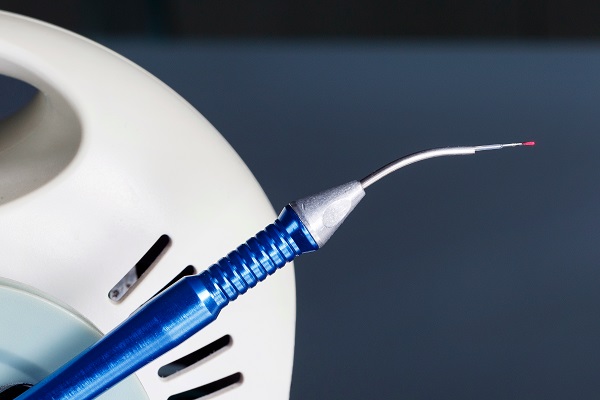3 Laser Dentistry Procedures

Laser dentistry has been around for several years. In recent years, it has become more popular because it offers an effective way to perform many procedures. Dentists use lasers to treat a variety of conditions, including tooth decay. Read on to find out when your general dentist may recommend laser dentistry.
Laser dentistry
Many dental professionals believe that lasers can make dental treatments more efficient. Lasers usually help to treat a range of conditions related to the soft tissues and hard tissues in the mouth. Dentists can also perform cosmetic treatments with lasers rather than manual scalpels. There are several dental procedures that use lasers. These include gum disease treatment, laser teeth whitening treatment, and cavity detection.
Gum disease treatment
Gum or periodontal disease is a common infection of the supporting tissues and bone that hold the teeth firmly in place. The condition is usually caused by a variety of factors. These include poor oral health and smoking. Other common causes include chronic illnesses like diabetes, some medications, and genetic susceptibility. Some treatment options for periodontal disease are scaling and root planing or gum flap surgery.
When it comes to laser therapy, the dental provider will use a laser to access and get rid of inflamed gum tissue from around the tooth’s root. Root scaling often starts once the infected tissue has been removed and the root is exposed. The provider will scrape off the calculus and plaque built up around the root and below the gumline. The dentist will then use particular instruments to remove any rough spots.
This will ensure they do not attract bacteria and cause future infections. The region between the patient’s gum and the root can then regenerate during the healing process. There are many benefits to using lasers to treat gum or periodontal disease. When lasers are used correctly, the patient experiences less swelling, bleeding, and discomfort during treatment.
Laser teeth whitening and cavity detection
Laser teeth whitening is an effective way to reduce stains. The procedure involves the application of a bleaching gel to the front of the teeth. The bleaching gel is often made with either carbamide peroxide or hydrogen peroxide. It usually releases oxygen onto the teeth’s surface and whitens them. The dentist may then decide to use a bleaching light or laser.
After it is switched on, it will activate the bleaching process. Patients must sit still to ensure the laser shines evenly on all the teeth. Lasers often speed up the bleaching process during whitening sessions. Some people get noticeable results from this treatment in just one visit to the dentist. Some lasers can also detect tooth decay or cavities early. They are commonly used by dentists to remove decay-causing bacteria and cavities in teeth.
Is laser dentistry right for you?
Lasers can treat many dental conditions and diseases. They can also make dental procedures more comfortable for patients. To find out if laser dentistry is right for you, talk to your dentist. Your dentist will recommend the ideal treatment option based on your situation.
To learn more about our services, visit https://www.dentistinridgewood.com or call our Ridgewood office at (201) 620-9996 to schedule an appointment.
Check out what others are saying about our dental services on Yelp: Laser Dentistry in Ridgewood, NJ.
Related Posts
Laser dentistry has been a popular method of dental care for the last several decades. Lasers are perceived as less painful and more effective than traditional dental treatment methods and can be used for a variety of procedures with a high degree of precision.With the use of lasers for dental procedures, patients experience less pain,…
A key part of a general dentist's job is helping patients protect their teeth from damage, wear, and decay. Preventing dental problems can help patients save time, trouble, discomfort, and money. Here is a closer look at how general dentists help patients keep their teeth in good condition.General dentists may provide the following preventive services…
Choosing a kid friendly dentist is critical for your child’s dental health. The right dentist understands a young patient’s needs and their development. As a parent, you need to be aware of those big moments in a child’s oral wellness. This will help you keep on top of good oral hygiene at every stage of…
A general dentist is usually the primary caretaker for oral health, providing routine and preventative care. However, some choose only to schedule an appointment once they have an issue they can no longer ignore or self-treat. Either way, a general dentist has many of the services you need to obtain or maintain optimal oral health.The…

